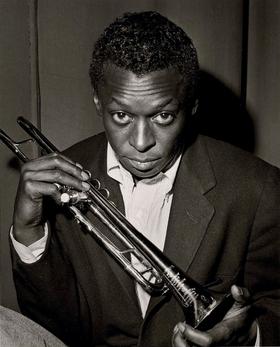A Look Back: Miles Davis Quintet Pushes Boundaries of “Gingerbread Boy”

“Gingerbread Boy” – a fetching blues head by Jimmy Heath – became a jazz standard almost immediately after it was first recorded.
Usually, its melody is played in call-and-response: the horns play a line, the piano or guitar replies with a specific riff, repeat.
When the Miles Davis Quintet of the late 1960s first added “Gingerbread Boy” to its songbook, it came out more-or-less typically: Miles (trumpet) and Wayne Shorter (sax) would play the melody, Herbie Hancock responded on piano, and Ron Carter (bass) and Tony Williams (drums) laid down a spirited yet straightforward swing groove.
But history remembers this particular Miles band as state-of-the-art, a reputation earned by pushing every boundary possible. In July 1967, the quintet launched into “Gingerbread Boy” at a breakneck pace.
Gone is Herbie’s “duh duh-duht duhhh, duht duht” comping in favor of an extended drum fill; gone is the tail of the melody in the turnaround; gone is bassist Ron Carter in the opening salvo almost entirely. It’s a different animal, with new handlers.
As the band launches into its solos, it only grows hungrier and more aggressive. The blues form begins to fracture at the edges of bar lines, the harmonies grow more tense and unresolved, and Tony Williams drives like a man possessed, swerving for whatever accent or displacement he felt necessary, safety be damned.
Everyone pauses to catch their collective breath between solos. Then everyone starts playing chicken anew, daring each other to get ever weirder.
Around this time, this quintet was making studio recordings of some fascinating original compositions from all its members, including some which are still played today. But live, it’s as if Miles wanted to suggest ideas that both the bandstand and the audience could take hold of — something like “let’s play a funky little blues” — and subvert it.
“Gingerbread Boy” became yet another vehicle for high-risk collective experimentation, with requisite mess and collateral damage, and maybe a little immortality in the process.
9(MDA3NDU1Nzc2MDEzMDUxMzY3MzAwNWEzYQ004))
Become a Member
Join the growing family of people who believe that music is essential to our community. Your donation supports the work we do, the programs you count on, and the events you enjoy.
Download the App
Download KUVO's FREE app today! The KUVO Public Radio App allows you to take KUVO's music and news with you anywhere, anytime!